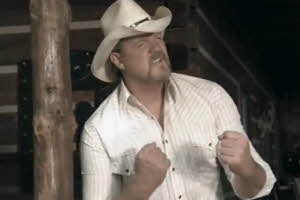We still like her, kinda.

[Video][Website]
[6.83]
Iain Mew: Not sure how much of the sense of menace I get from the spoken title here is actually due to its resemblance to commands to “Finish him!” in Mortal Kombat, but its interjections work really well in a song which does a lot to clothe itself in stylish softness but ultimately reveals itself as emotionally brutal. I also love the way that the strings appear for all of half a second before the first verse before being it cuts to just the rumbling drums, again unafraid to get right to the point.
[8]
Alex Ostroff: ‘Finish Line’ is a break up song that sounds more like a pronouncement than argument or recrimination. Measured acceptance is rare in pop – desperation lends itself better to showy vocals and big emotions – but this is how things usually end. Yasmin paces her vocals in the verses and breaks them into pairs of syllables, just barely hinting at the will required to steel herself for what’s coming and maturely walk away. She’s talking herself into this just as much as she’s telling him anything. Betraying herself only once, her voice breaks as she asks “Was I hard to love?” before the head reasserts itself and the heart retreats. The swirling trip-hop provides a pleasant enough backing track, but the secret ingredient is that jazzy boom-bap loop that gives the entire song an Ashley’s Roachclip-esque vibe.
[8]
Alfred Soto: Like the percussion loop, this flirts with interesting.
[6]
Britt Julious: A disappointment in numerous ways: the vocals, the production, the lyricism. I expected more of Yasmin after her first single and her whispery vocals on her collaboration with Jamie xx, but this song feels like a poor cut from a third-rate, late-90s pop&b singer. After having listened to it three times now, I’m not sure what happens. The song ends and I can’t remember much about it, except that it didn’t really “do” anything for me. That’s never a good sign.
[4]
Michaela Drapes: Hearing a song like “Finish Line” always breaks my heart a little; Americans will never embrace a quintessentially cool British product like this one (via Labrinth), with its icy beat and hands off, please vocals. Which is terribly sad, because Yasmin has more depth and presence and heart to offer than most of our power-hungry melismatic divas could ever muster in such a simple setting. On the bright side, this track will obviously do well in the rest of the world, especially backed, as it is, by a suite of mindblowing remixes for every occasion. I’m keeping an eye on this one, I think she’ll go far.
[8]
Edward Okulicz: Her voice is steel on top of unsureness – she’s resigned, plaintive and strong when her words demand those emotions. The song is of a high quality too, sinking its hooks in; the beats don’t overwhelm, they ornament and flatter.
[7]








